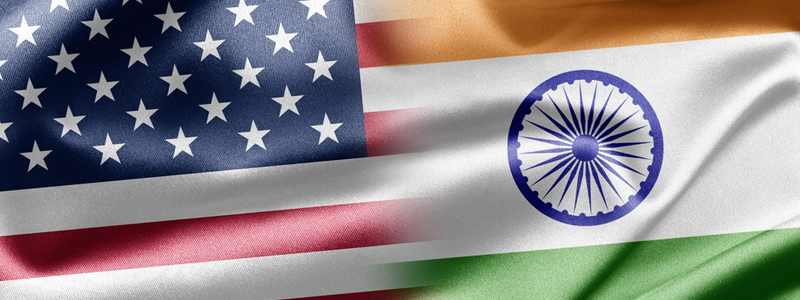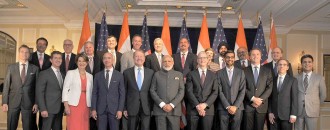
India’s move towards N-deal and export control regime gains mixed response
Sai Nikesh | The Dollar Business
Aimed at strengthening global non-proliferation and export control regimes, India’s bid to join as a member in a 48-member Nuclear Suppliers Group (NSG) and a permanent seat in United Nations Security Council (UNSC) gained special focus in the world media. Pakistan said that this move will have an adverse affect on the political and economic stability in South Asia and will also weaken the non-proliferation regime. Reacting to the United States backing to India’s NSG membership, Pakistan Prime Minister's Adviser on National Security and Foreign Affairs Sartaj Aziz said, "We have also noted the joint statement suggesting that India is ready for NSG membership and other export control regimes.” However, he said, Pakistan is not averse to civil nuclear cooperation and NSG membership for Non-NPT states, adding that, “Pakistan values its relations with the US and expects it to play a constructive role for strategic stability and balance in South Asia.” Even though, this move by India likely gained support from China, China asked India to maintain caution on the issue. “We support the NSG to include new members and we support India to take further measures to meet the requirements for the inclusion in the group,” said Chinese Chinese Foreign Ministry Spokesperson Hua Chunying said at a media briefing. On the other hand, while the US backed India for NSG membership, China also seems to be in a thought to push for Pakistan’s NSG membership as an effort to show its presence in controlling NSG panel. Prime Minister Narendra Modi had on Sunday said President Obama has assured him of strong US efforts in support of India's full membership of the four international export control regimes at the earliest, and indication of US backing for NSG membership. Aimed at strengthening export control regimes, India and the US committed to continue to work towards India’s phased entry into the NSG, the Missile Technology Control Regime (MTCR), during Obama’s visit. On a whole, it is an interesting point to note that the US-India bilateral cooperation is going to play a major role in Asia Pacific and on the other hand, we will have to wait and see how China is going to make its move to counter this by backing Pakistan. In a global view, the move towards US may free India, to some extent, from its dependence on China for the electronic hardware, among other sectors and will increase India’s dependence on US, which is already high in electronic manufacturing sector and gradually growing in defence sector. Whereas in the South Asian scenario, this latest move of India towards the United States may have a larger impact on India’s relations with the South Asian countries which are already looking forward for better ties with India.
This article was published on January 28, 2015.






 to success.
to success.